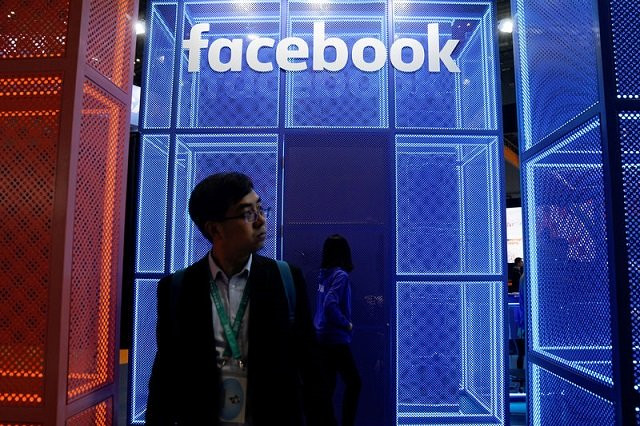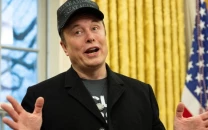Facebook takes down fake accounts in UK, Romania
The companies have been under pressure from regulators around the globe to fight the spread of misinformation

A Facebook sign is seen during the China International Import Expo (CIIE), at the National Exhibition and Convention Center in Shanghai, China November 5, 2018.
PHOTO: REUTERS
The individuals behind these accounts represented themselves as far-right and anti-far-right activists in the UK, Nathaniel Gleicher, head of Facebook's cybersecurity policy, wrote in a blog post.
Some of the most popular pages that were taken down defended the role of migrants and Muslims in Britain and highlighted hostile content related to Tommy Robinson, the former leader of far-right extremist group English Defence League, according to a blog by Digital Forensic Research (DFR) Lab.
Facebook paid teens to track smartphone use
DFR, a small online forensics team of Washington-based Atlantic Council thinktank, has been working with Facebook to enhance the social network’s investigations of foreign interference.
Facebook, Twitter, and Alphabet have been under pressure from regulators around the globe to fight the spread of misinformation aimed at destabilising elections by stoking hardline positions or supporting propaganda campaigns.
Last month, Facebook removed hundreds of Indonesian accounts, pages, and groups from its network after discovering they were linked to an online group accused of spreading hate speech and fake news.
Facebook taps user data to defend workers from threat
Facebook said on Thursday the people behind the fake accounts frequently posted about local and political news including topics like immigration, free speech, racism, LGBT issues, far-right politics, issues between India and Pakistan, and religious beliefs including Islam and Christianity.
About 175,000 accounts followed one or more of these pages, and around 4,500 accounts followed one or more of these Instagram accounts.
In Romania, the page admins and account owners typically posted about political issues, including partisan news under fictitious bylines in support of the Social Democratic Party (PSD), Gleicher said.



















COMMENTS
Comments are moderated and generally will be posted if they are on-topic and not abusive.
For more information, please see our Comments FAQ